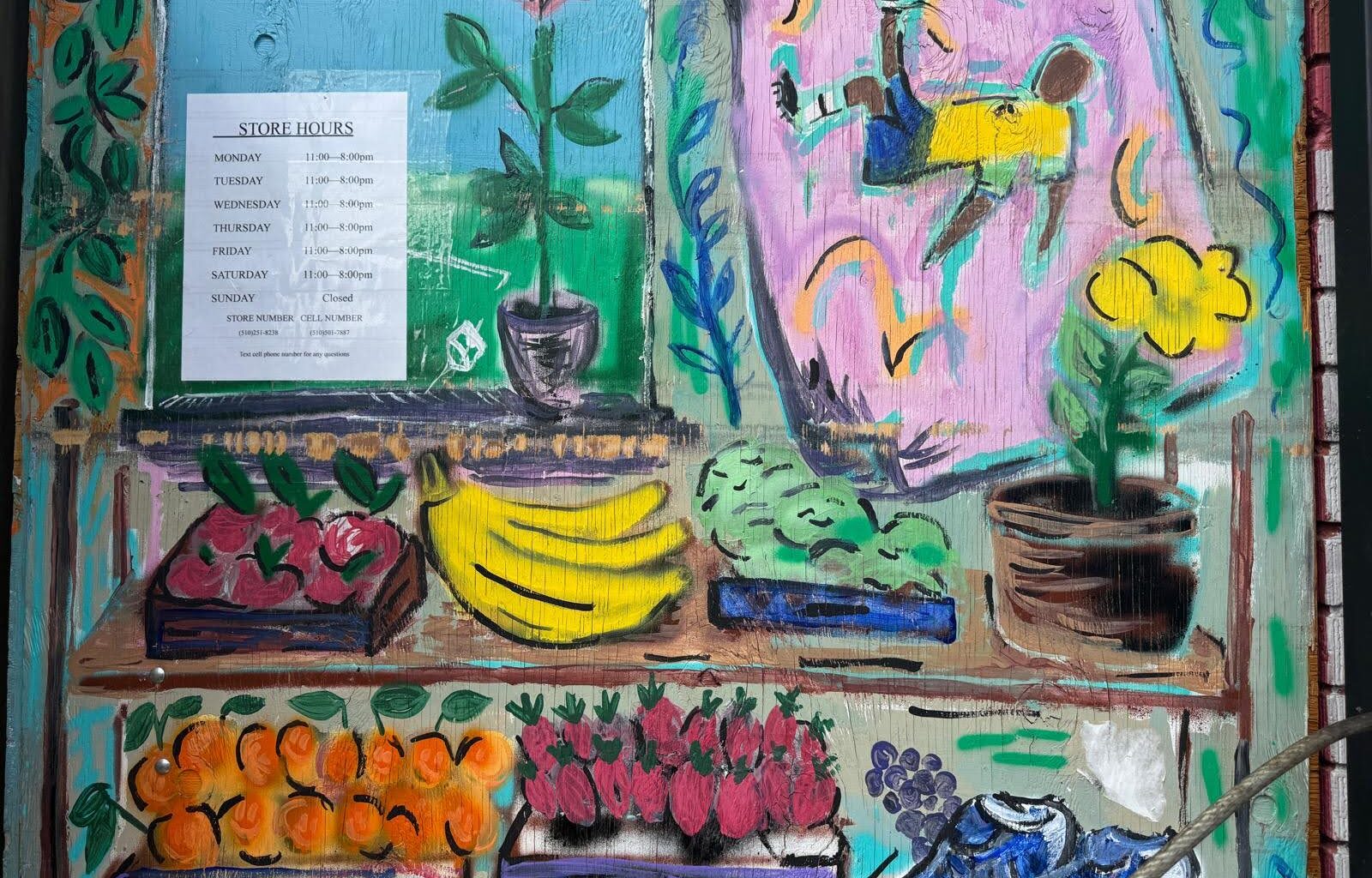Saba Grocers Initiative plans to launch a community-owned food hub by March to distribute fresh local and affordable food to 50 corner stores, schools, hospitals, and food banks across Alameda County. But to fully realize its vision, Saba is asking the community to help raise $1.5 million.
In September, the nonprofit received a $2 million grant from the California Department of Food and Agriculture’s Farm to Community Food Hubs program as part of a $13.8 million investment in food system infrastructure across the state.
Saba currently supports 12 local corner stores in areas where supermarkets are scarce and many residents rely on liquor stores for groceries — especially in East and West Oakland, including neighborhoods like Clinton, Lower Dimond and parts of Deep East.
The food hub will be at Jack London Square’s produce terminal. It will expand Saba’s impact beyond Oakland, with the aim of serving 50 stores, schools and food banks in Alameda County. Even if the full $1.5 million isn’t raised by then, Saba will still launch by March, starting with fewer partners and continuing to fundraise to reach full scale.
 Elizabeth Ora shops for vegetables at Wah Fay in Oakland. (All photos by Paula Cristobal)
Elizabeth Ora shops for vegetables at Wah Fay in Oakland. (All photos by Paula Cristobal)
“I used to have high blood pressure. Now, over two years, I don’t even have to take medication,” said Elizabeth Ora, who uses the Fresh5X program at Wah Fay. For every $1 spent on produce purchased with Supplemental Nutrition Assistance Program benefits, Fresh5X customers receive an extra $5 in fruits and vegetables. Ora said she now eats more vegetables because she can finally afford them.
“I wish it was like this two stores down the street. They don’t have this. … They just have a bunch of liquor and junk food,” she said.
Since it was founded in 2019, Saba Grocers Initiative has been breaking down logistical and economic barriers to bring affordable produce to underserved neighborhoods by providing corner stores with refrigeration, staff training and coordinated bulk produce purchasing. These are services most small shops can’t access on their own. Since then, Saba has sold more than $3.5 million of produce from 54 California farms.
Looking for monthly donors
Phillip Wong, who owns Wah Fay in the Clinton neighborhood, said before he started working with Saba, he was only selling $50 a week of produce. Now, it’s around $200 or $300. Jamal Al Jamal, owner of A & G Market, said that Saba made it possible for him to stock fresh fruits and vegetables without having to place large orders.
“There’s no one else out there delivering like that,” Jamal said.
The initiative was funded in 2019 through COVID-19 relief dollars and Oakland’s soda tax, a one-cent tax on every fluid ounce of sugary beverages. But with cuts in federal funding and Oakland facing budget shortfalls, public funding has become less reliable.
Saba needs to fill the funding gap to fully launch the project and ensure stability in services. The initiative aims to sign up 50 monthly donors to bridge th gap.
Lina Ghanem said monthly donations will provide the stability needed to keep core programs like Fresh5X running, as well as fund the food hub.
“Our goal is still to get the monthly donors so we can have that longevity and commitment,” Ghanem said.
“We’re hopeful that the local individual donors and individuals in our communities can help us go through this phase as the city kind of gets back on its feet.”
Oakland honors Black Panther co-founder Bobby Seale with a day and a street

